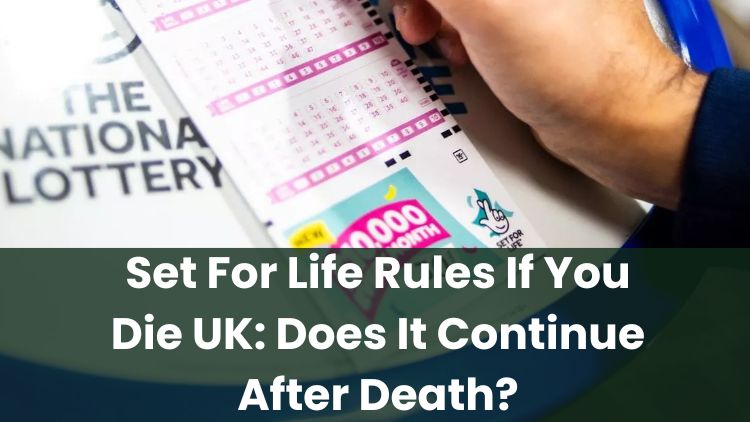
Set For Life is a UK annuity lottery introduced in March 2019, offering a prize of £10,000 per month for 30 years. This prize structure provides a fixed income over an extended period.
But what happens if a winner passes before the completion of the 30-year term? This blog post outlines the rules governing the continuation or distribution of outstanding winnings and the procedures for transferring these funds.
Read on to learn more.
What Happens If You Win Set For Life And Then Die?
If a Set For Life winner dies before all their prizes have been paid, the National Lottery has clear measures in place. The remaining prize is not lost. Instead, the unpaid winnings are paid out as a lump sum to the winner's estate.
The estate will then distribute the lump sum according to the winner’s will or, if there is no will, under the law. This approach ensures that the remainder of the prize benefits those closest to the winner.
Can Set For Life Be Passed On?

Winnings from Set For Life cannot be transferred to someone else while the winner is alive; the monthly payments always go into the winner’s bank account. If you’ve won the top Set For Life prize and want to share your prize money during your lifetime, transferring funds from your account is always an option.
However, as described previously, if the winner dies, the remaining prize balance becomes part of their estate. The estate can then pass the money on to beneficiaries, following the instructions set out in a will or, where there is no will, by standard legal processes.
Set For Life Lump Sum: Can You Have It Paid In Full?
If you win the top prize in Set For Life, you won’t be able to take the full amount as a lump sum while you’re alive.
The only time a lump sum payment comes into play is if the winner passes away before all the instalments have been paid. In that case, the remaining balance is paid out as a single lump sum to the winner’s estate, making sure that any unpaid winnings don’t go unclaimed.
Does Set For Life Continue After Death?
Payments do not continue in regular monthly instalments after a winner’s death. Instead, the lump sum of any remaining balance is sent directly to the estate. If there is a will, beneficiaries will be named and the funds can be distributed as specified.
If there is no will, the law will determine who receives the money. In extremely rare cases, where no legal claimant comes forward within the set period (usually 180 days), the balance may be donated to the National Lottery’s charity fund.
Sharing Set For Life Winnings
Monthly instalments can only go into the winner’s own account, as mentioned earlier. To share funds with others while alive, the winner could make transfers from their bank using the amounts received from Set For Life.
Upon death, any remaining payments are dealt with as already described, with the estate handling the distribution process.
Is Set For Life Worth It?
Whether Set For Life is worth playing really depends on your personal preferences and what you’re looking for in a lottery prize. The game offers an annuity-style payout, which means you’d receive a steady monthly income over several decades if you win the top prize. Plus, if the winner passes away before all payments are made, the remaining balance is paid out as a lump sum to their estate, ensuring nothing is lost, as we’ve outlined in this blog post.
On the other hand, the odds of winning the top prize are quite long—around 1 in 15.3 million—so it’s important to keep your expectations realistic. As with any lottery, playing should be seen as a form of entertainment rather than a reliable way to make money.
Ultimately, whether Set For Life is right for you depends on your personal goals and your preferred way of playing.
*All values (Bet Levels, Maximum Wins, etc.) mentioned in relation to these games are subject to change at any time. Game features mentioned may not be available in some jurisdictions.
**The information provided in this blog is intended for educational purposes and should not be construed as betting advice or a guarantee of success. Always gamble responsibly.
